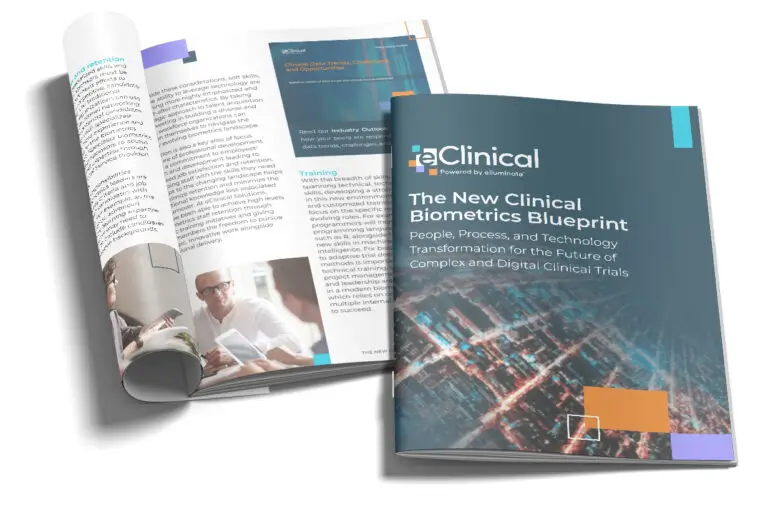
Navigating Change: 10 Highlights from the FDA’s Draft Guidance for Decentralized Trials
In the ever-evolving landscape of clinical research, decentralized clinical trials (DCTs) have emerged as a promising approach to enhance patient-centricity, improve operational efficiency, and gather real-world data. Against this backdrop of opportunity, in May, the FDA (Food and Drug Administration) published draft guidance, “Decentralized Clinical Trials for Drugs, Biological Products and Devices – Guidance for Industry, Investigators, and Other stakeholders”, to help sponsors and investigators navigate the intricacies of conducting DCTs. It’s important to note that the guidance will be open for comments from industry stakeholders until the 1st of August 2023, and therefore its contents may be influenced by this feedback.
In this blog, I will review ten highlights and observations from the draft guidance and share my key insights and considerations from a data perspective that sponsors, and service providers alike need to consider in managing decentralized trials.
1. Fully Decentralized vs Hybrid Trials
The guidance advises using fully decentralized trials for investigational products that are simple to administer and, importantly, have well-characterized safety profiles. For more complex assessments, the guidance states, hybrid trials combining site visits with remote methods such as ePROs, telehealth, in-home visits, or local healthcare providers can be considered instead.
2. DCT Challenges & Planning
Overcoming coordination challenges across non-traditional trial sites is a crucial consideration of DCTs. To address these coordination issues, the guidance says that plans should detail the use of local facilities, personnel, visits to patient homes, and distribution of investigational products directly to participants. Importantly, it is essential to review these plans with relevant FDA divisions before starting the trial.
3. DCT Designs
A physical location listed on Form 1572 (the form filed by an investigator running a clinical trial to study a new drug or agent) or IDE (Investigational Device Exemption) should be designated. These serve as a centralized repository for all trial-related records and interviews with trial personnel. The guidance also advises that non-inferiority studies need careful consideration and pose specific challenges because of the potential assessment variations among healthcare providers. In such cases, these designs should be reviewed with the FDA beforehand.
4. Visits & Activities
Telehealth visits can replace in-person interactions where feasible, and protocols should specify this where relevant. Adequate training should be provided to all personnel and participants involved in the study to ensure consistency. Documentation, including case report forms (CRFs), should be collected for telehealth visits, and patient identities must be verified. Naturally, it is also crucial to outline an adverse event (AE) reporting process in the protocol for effective identification and management.
5. Digital Health Technologies
In relation to digital health technologies, recommendations from the FDA draft guidance entitled “Digital Health Technologies for Remote Data Acquisition in Clinical Investigations” should be used. The guidance highlights the importance of selecting appropriate and available technologies to facilitate the study. Further, in implementing “Bring Your Own Device” (BYOD) approaches, sponsors should ensure supplied devices are available as an option to ensure equal access for all participants, irrespective of socioeconomic factors. This latter point reflects the growing drive towards diversity within trial participation, an area which decentralized trials stand to address.
6. Key Stakeholder Responsibilities
Sponsors’ responsibilities in DCTs mirror those in traditional site-based studies. They should prioritize diversity and inclusiveness in the patient population, develop a comprehensive Data Management Plan (DMP), describe operational aspects in the protocol, ensure compliance with local laws and regulations, and monitor the investigation effectively.
Investigators are responsible for overseeing trial-related activities and ensuring adherence to the investigational plan and applicable regulations. As part of their involvement within a decentralized trial, they may engage local healthcare providers, employ technologies like videoconferencing for oversight, and maintain enrollment aligned with their ability to manage and supervise. Regular reviews and quality control measures should be conducted to minimize variability across local healthcare providers.
7. eConsent & Institutional Review Board
Provided that all regulatory requirements for informed consent are met, eConsent can be obtained remotely from patients for decentralized trials. The guidance additionally recommends the use of central Institutional Review Boards (IRBs) to expedite protocol review, consent document approval, and other trial-related information.
8. Investigational Products
The administration of investigational products should be conducted under the supervision of investigators or sub-investigators. However, the guidance notes, if a drug has a well-characterized safety profile and does not require specialized monitoring after administration, it may be administered without direct supervision. For investigational devices in DCTs, factors such as medical use, instructions, and risk profiles should be considered. At the same time, the protocol should clearly document considerations for appropriate handling, packaging, distribution, and use of investigational products or devices, which may be shipped directly to participants.
9. Safety Monitoring
Sponsors should implement a robust safety monitoring plan to ensure participant welfare during DCTs. Like site-based trials, the plan should clearly describe how adverse events will be reported, any medical assistance for participants sought, and ensure effective data collection and response by investigators. If any issues arise concerning remote administration or use of investigational products, sponsors must discontinue the practice and consult the FDA or IRB (Institutional Review Boards) for further guidance on trial continuation.
10. Software
The guidance highlights that DCTs can harness various software platforms such as tablets, cell phones, and laptops to streamline operations. Software solutions can manage eConsent, reports, electronic case report forms (eCRFs), visit scheduling, investigational product shipment tracking, digital health technology data collection, and communication between site personnel and participants. While it is crucial for software to comply with 21 CFR Part 11 requirements, ensuring data reliability, security, privacy, and confidentiality, notably, real-time video interactions and telehealth are considered live interactions and are exempt from 21 CFR Part 11 compliance.
Comments
From a data perspective, below are some of my key comments:
- The FDA stresses the importance of specific and robust plans. Naturally, the planning for DCTs necessitates robustly addressing data-related challenges such as data collection from various non-traditional sources and ensuring data integrity and reliability. Leveraging both technology and DCT expertise can help sponsors to navigate the new data environment and ensure the right workflows are in place.
- The use of appropriate software solutions helps facilitate efficient data handling, secure data transmission, and effective communication between stakeholders, addressing data-related challenges in decentralized trials.
- The guidance emphasizes the need to select the right decentralized approach (fully decentralized or hybrid) depending on the nature of the product and assessments required. By involving data professionals and DCT-experienced statisticians from the early stages of protocol design, stakeholders can align their protocol and data capture solutions with the guidance’s recommendations.
- The guidance stresses the importance of robust monitoring in the context of decentralization. Digital tools and technologies that enable continuous data monitoring and prompt identification of any issues can help stakeholders to align with the guidance while ensuring patient safety and maintaining study efficiency. This proactive approach to data monitoring is essential for successful decentralized trial implementation and aligns with the FDA’s recommendations.
Learn more about the value that eClinical Solutions elluminate Clinical Data Cloud and Biometrics Services brings to decentralized trials
In conclusion, while the core principles of traditional clinical trials remain unchanged, the emergence of Decentralized Clinical Trials (DCTs) introduce a new level of flexibility by reducing site visits and utilizing Digital Health Technologies (DHTs) for direct patient data collection. This flexibility stands to serve patients through greater access to trial participation and the potential of delivering efficiency and productivity benefits to sponsors. In the context of rapid change, the draft guidance marks a timely step forward bringing welcome clarity for all stakeholders involved in clinical trials, who are considering, or already implementing DCTs. By addressing challenges, streamlining processes, and leveraging technology, sponsors and investigators can navigate the intricacies of DCTs while ensuring participant safety, data integrity, and trial success.
To learn more about key drivers shaping the clinical biometrics landscape today, and the opportunities for transformation across people, process, and technology, download our ebook.

The New Clinical Biometrics Blueprint
Author

Venu Mallarapu is a digital innovation leader with over two decades of experience in business and IT advisory, strategic consulting, relationship, and delivery management to global life sciences organizations. As eClinical Solutions’ Vice President of Global Strategy and Operations, Venu is responsible for strategic development to meet global demand for the company’s platform and service offerings. He brings his expertise in collaboration and building teams to drive adoption, market expansion and innovation of the elluminate Clinical Data Cloud and eClinical’s Biometrics Services, ensuring current and future clients recognize value as industry needs evolve. Venu is a subject matter expert in Clinical, Regulatory, Quality and Safety & Pharmacovigilance functions, and has delivered Strategy & Transformation Advisory Consulting to top global Pharma, Biotech, Vaccine, and Medical Devices clients. He has spoken at various Life Sciences and Tech industry events and is a recognized thought leader in R&D with published articles.
By submitting, you agree to the processing of your personal data by eClinical Solutions as described in our Privacy Policy.







